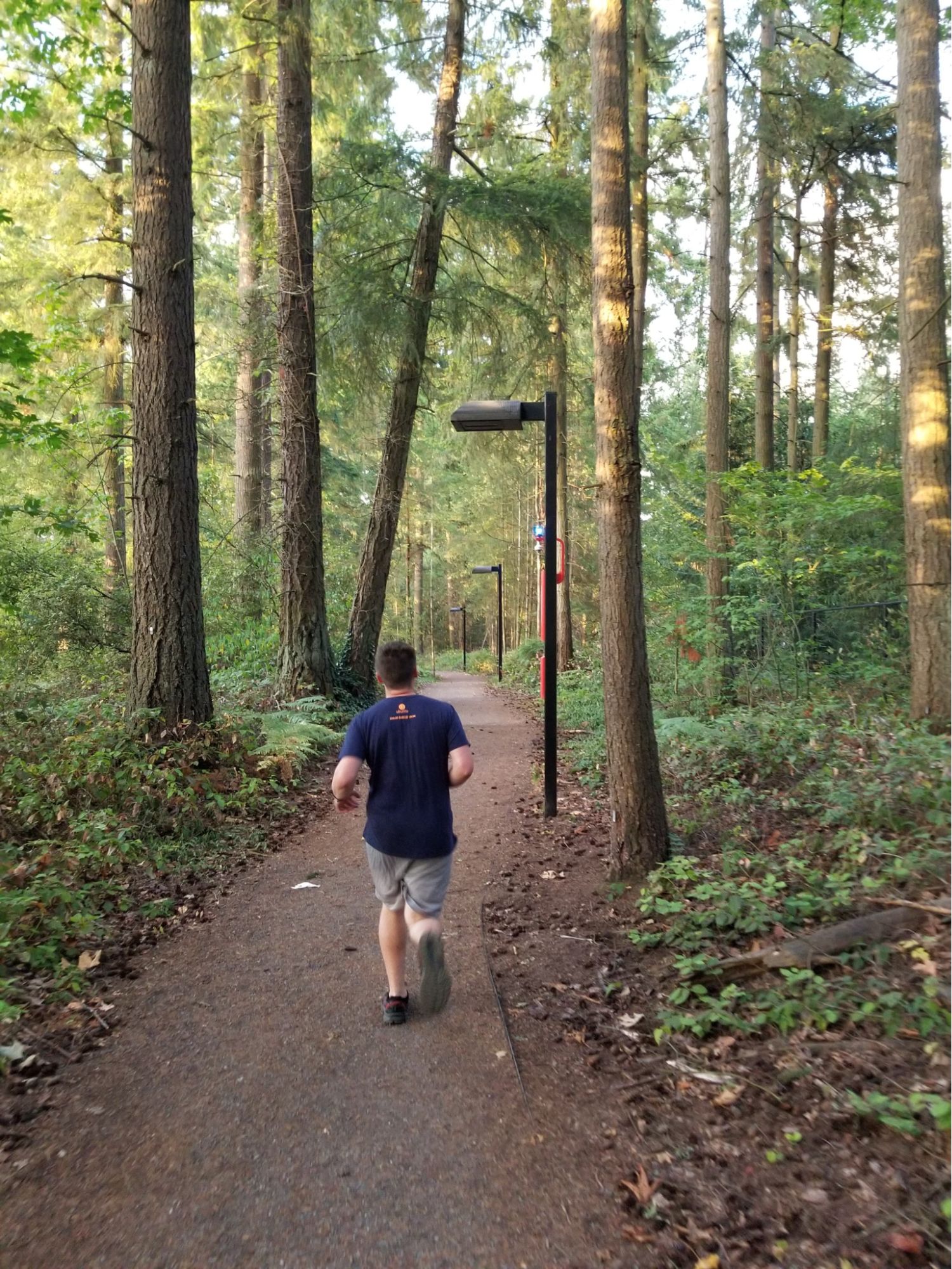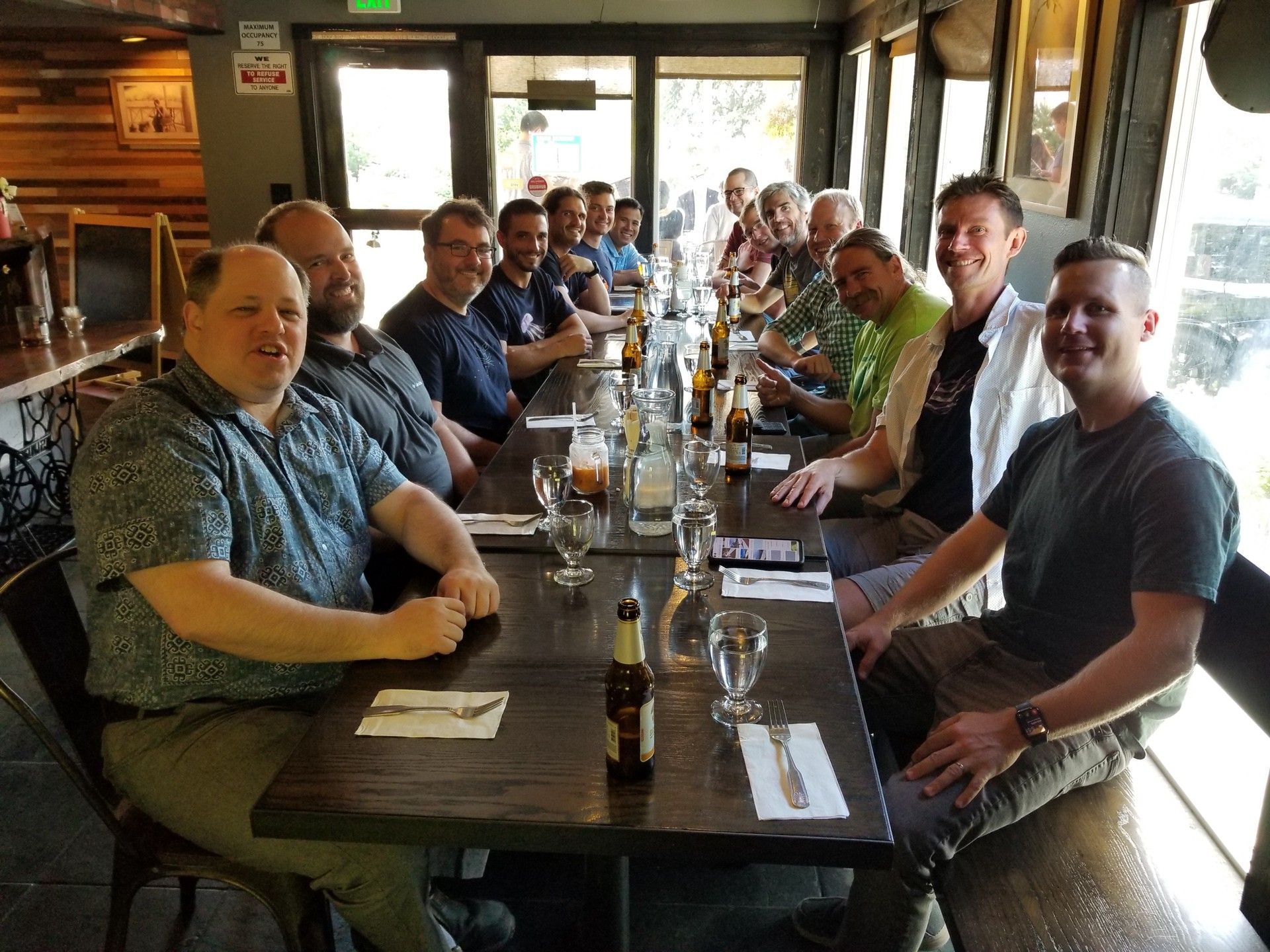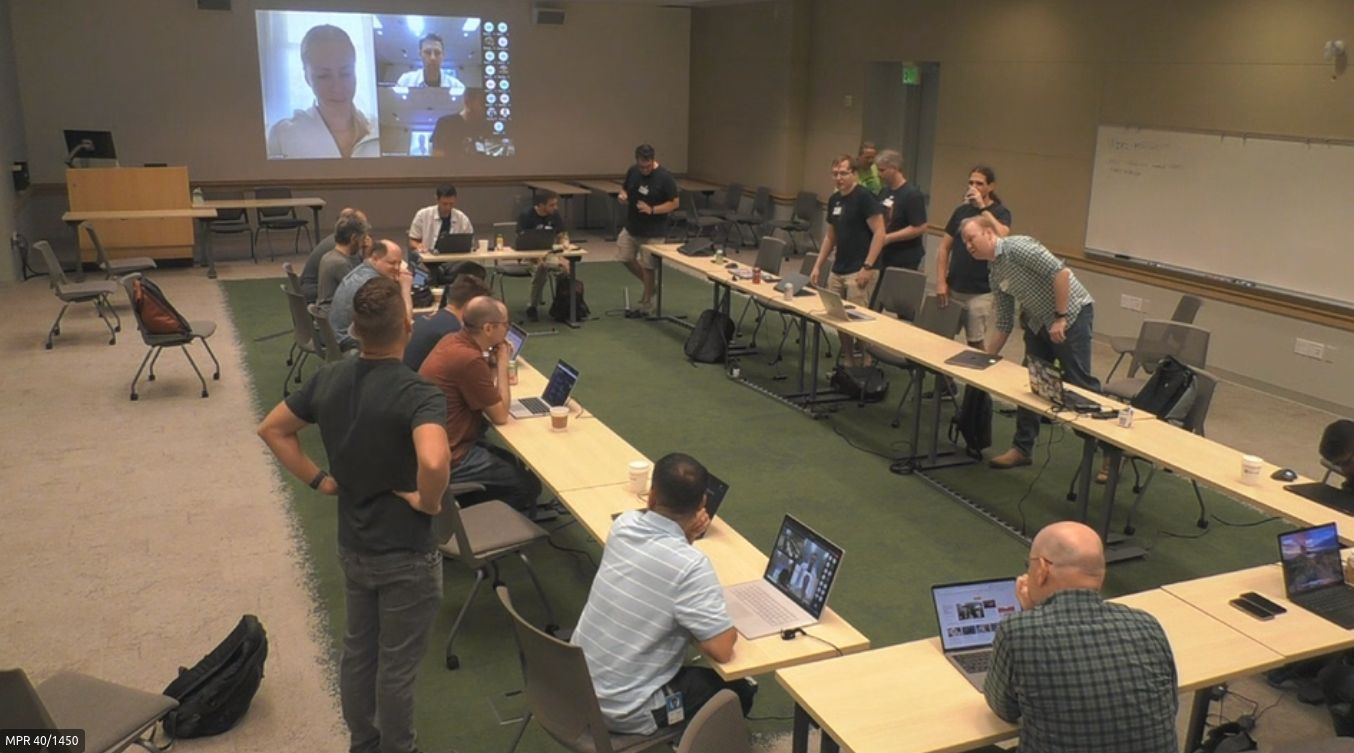cloud-init: Summit 2023¶
After a three-year hiatus the two-day cloud-init summit finally resumed in August, giving Canonical a chance to reconnect with the community in person, and to realign on the direction and goals of the project.

Enjoying a jog through the beautiful forest around the Microsoft Redmond campus!¶
The event was generously hosted by Microsoft this year at their Redmond campus in Seattle, Washington, and we are grateful to the Microsoft community members “on the ground” who coordinated with Canonical’s cloud-init development team to help organize and run the event. Big thanks go as well to the Canonical community team for helping us to set up the event site, as well as for their support and guidance with all the planning involved.
As in previous years, the summit was a great opportunity for cloud-init contributors to get together and discuss the most recent developments in the project, provide demos of new features, resolve outstanding issues, and shape the future development direction of the project. It was wonderful to see some “old” faces again after such a long time, as well as getting to meet some of our newer contributors in person.
The first hybrid summit¶
This summit was organized as a hybrid event for the first time, and despite some initial uncertainties about how to implement that, it worked very well. In-person attendees included developers and contributors from Microsoft, Google, Amazon, Oracle, openSUSE and we had remote presentations provided by FreeBSD and AlpineLinux maintainers.
In addition to our in-person gathering, we also had lively participation from our remote attendees from around the world. With this hybrid format allowing attendance from community members who might not otherwise have been able to take part, this is a format that we’ll want to carry forward to next year to open the event to the widest possible audience.
Special thanks go to Canonical for sponsoring the dinner! It was a great chance to build community interactions “after hours”, with topics ranging far and wide. Overall, it was a perfect opportunity to dig into industry dynamics that influence cloud-init engagement.

Highlights of the discussions¶
Thanks to all our presenters; Mina Galic (FreeBSD) and Dermot Bradley (AlpineLinux), Chris Patterson (Microsoft) James Falcon, Brett Holman, Catherine Redfield, Alberto Contreras, Sally Makin, John Chittum, Daniel Bungert and Chad Smith. You really helped to make this event a success.
Presentation takeaways¶
Integration-testing tour/demo: James showed how Canonical uses our integration tests and pycloudlib during SRU verification, and demonstrated how we think other clouds should be involved in standard evaluation of cloud-init releases before publication.
There was interest in leveraging this testing at openSUSE, Amazon Linux and possibly Microsoft’s Mariner; they may be looking to extend our framework for their release testing. Our homework from this is improved developer docs on extending integration tests for other distributions.
Azure are looking to invest in distribution-agnostic integration test frameworks and want to knowledge-share with the cloud-init community on that.
Security-policy for cloud-init CVE handling: Our community would like Canonical to provide more context during the embargo period on CVEs about the mitigation steps required. This is especially the case in any downstream packaging, to allow downstream package maintainers more time to prepare.
Cloud platforms want/like strict schema validation and errors on invalid user-data/config. They also requested more visibility into any warnings surfaced by cloud-init with simple tools so that they can avoid costly “log spelunking”.
This aligns well with Brett’s ongoing roadmap work to raise warnings from the CLI and some of the strict JSON schema validation on network-config and user-data/vendor-data.
Good lessons from both AlpineLinux (Dermot Bradley), who investigated SSH alternatives like dropbearSSH and tinySSH, and FreeBSD (Mina Galić), who reported on the development and publishing process and on finding better ways for FreeBSD and Alpine to engage with clouds, so they can get sponsorship of open source images with cloud-init hosted in AWS.

Round-table discussions¶
Boot-speed: The discussion hosted by Catherine, Alberto and Chad confirmed that our ongoing boot speed work is critical to clouds and cloud-customers, who continue to gauge boot speed based on wall time to SSH into the instance.
This is a more critical measurement than the time to all services being up. In our discussion, we received feedback that every millisecond counts. We also learned that there is hesitation about moving to precompiled languages such as Go, due to the potential image size impacts, or Rust, due to the somewhat limited platform support.
Partners are also looking for cloud-init analyze to report on external systemd-related impacts (such as NetworkManager-wait-online.service or systemd-network-wait-online.service delays) due to external units/services that affect boot.
Review of our Python support matrix for all downstreams, with the goal of Python 3.6 version deprecation. Due to ongoing downstream support needs, we are looking to retain Python 3.6 support until March 2024.
Shared test frameworks: Azure intends to invest in integration testing with the cloud-init community, to develop distribution-agnostic best practices for verification of distribution releases, and boot-speed and image health analysis. If there are ways we want to collaborate on generalized testing and verification of images, they may provide some development toward this cause.
Breakout sessions¶
Private reviews of partner engagements with Oracle and AWS, and Fabio Martins, Kyler Horner, and James to prioritize ongoing work and plan for the future development of IPv6-only datasource support - as well as other features.
Brett and openSUSE’s Robert Schweikert worked through downstream patch review with the intent of merging many openSUSE patches upstream. Amazon Linux has a couple of downstream patches that they may want to upstream as well.
Conclusions¶
This two-day event gave us a fantastic chance to take the pulse of the cloud-init project. It’s given us a healthy understanding of areas in which we can better serve the community and how we can continue to build momentum.
Meeting face-to-face to reflect our cloud-init plans with the community helped confirm interest in some of the usability features we are developing, such as better error and warning visibility and improving boot speed in cloud-init. There is plenty of enthusiasm for continued collaboration on improved testing and verification that all distributions and clouds can leverage.
We also appreciated the opportunity to get valuable feedback on our documentation, our communication, and our security processes. We’ve also discussed and gained input into better practices we can adopt through GitHub automation, workflows that automate pull request digests, and upstream test matrix coverage for downstreams (beside Ubuntu). All of these things will help us to maintain the momentum of the cloud-init project and ensure that we are best serving the needs of our community.
Thank you!¶
This event could not have taken place without the hard work and preparation of all our presenters, organizers, and the voices of our community members in attendance. So, thank you again to everyone who participated, and we very much hope to see you again at the next cloud-init summit!
Notes of both days can be found on the cloud-init mailing list, and also are hosted in our GitHub repository. There you will find additional details about each topic and related discussions.
Finally, if you are interested in following or getting involved in cloud-init development check out #cloud-init on Libera.chat or subscribe to the cloud-init mailing list.